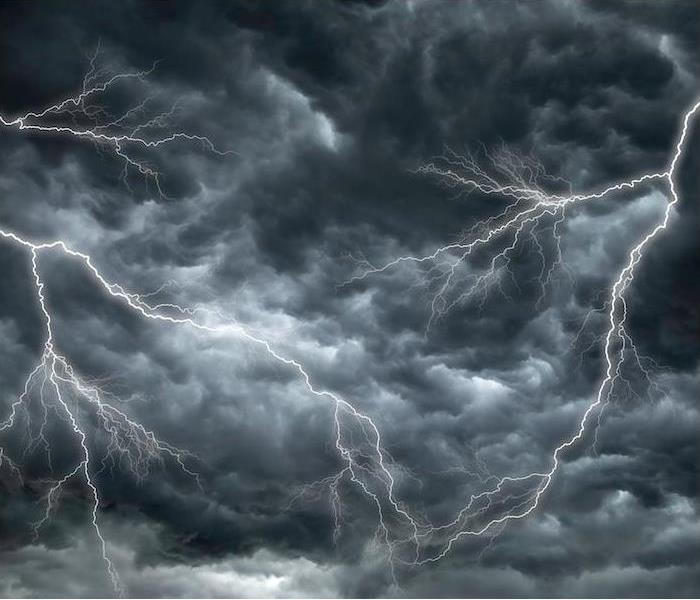Lightning Damage to Check for After a Strike- SERVPRO of Reno Southwest
1/28/2020 (Permalink)
 Storm and lightning damage require specialized restoration techniques and equipment. When a storm hits your home, you need the company with experience
Storm and lightning damage require specialized restoration techniques and equipment. When a storm hits your home, you need the company with experience
Lightning bolts are how a storm expels its electrical charge, and they are also a source of some of the most violent thunderstorm damage there is.
Lightning bolts can start fires, ruin electronics and cause severe damage to buildings structures, in addition to posing a severe risk to anyone without shelter. It is important to understand what causes lightning and types of damage it can cause in order to take precautions and stay safe.
How Electricity Becomes Lightning
Thunderstorms all contain an electric charge, which is where thunder and lightning stem from. The bolt of lightning stem from. The bolt of lightning we see is actually discharge of this electrical energy, and the thunder heard is the sound of the shock waves it creates.
Lightning either strikes between clouds or toward the ground, and when striking towards the ground, it will often travel through an object on its way. This is what makes it so dangerous to homes in particular because it travels through electrical wiring with great force.
What to Check for After a Lightning Strike
The background about lightning and the main types of damage it can use to a houseare essential in knowing what to inspect for after a strike.
- Wiring damage. With temperatures up to 500,000 degrees, it is not uncommon for lightning to catch a building on fire as soon as it strikes. Even if it is not immediate, the damage that it can do to wiring can lead to electrical fires starting spontaneously later on. The local fire officials or an electrician can typically preform tests to assess your risk after a strike.
- Ruined electronics. As lightning darts through the electrical system of a home, it fills the wires with an overloaded charge that can transfer through outlets and up the cords of electronics. This can be prevented by unplugging things before a storm and installing sure protectors on outlets.
- Damage to the structure. The same shock waves that produce thunder can also cause harm when lightning strikes the ground. They are powerful enough to crack foundations and shatter glass, so it is wise to do a home inspection after a storm if lighting has struck nearby.
If your home has been affected by storm damages or lightning- related fires, give us a call today! We are experts in damage cleanup and can restore your damage quickly 24/7





 24/7 Emergency Service
24/7 Emergency Service